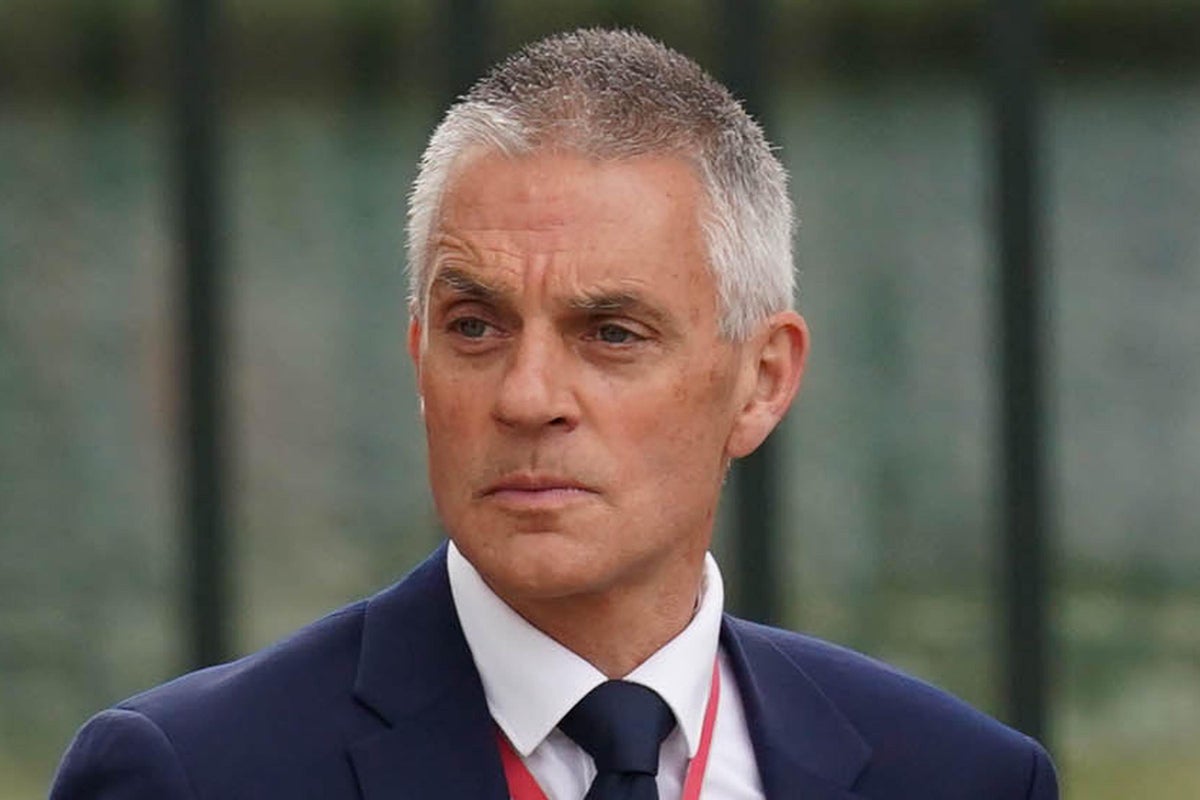
The UK’s immigration minister has told the head of the BBC he has ‘never been so disappointed in the corporation in his life’ over its refusal to call Hamas terrorists.
Robert Jenrick challenged BBC director-general Tim Davie to use the term during a closed-doors meeting of the 1922 Committee on Wednesday evening.
The corporation has been criticised since the deadly 7 October attack by Hamas on Israelis, in which more than 1,400 people were killed and around 220 taken hostage, for avoiding the “terrorists” label.
A number of Tory MPs and Israeli president Isaac Herzog are among those angered by the decision.
“I’ve never been so disappointed in the BBC as I have been this past fortnight,” Mr Jenrick is understood to have said. “I worry that the organisation has lost the confidence of many people and in particular the British Jewish community.”
According to the Telegraph, the minister went on: “That loss of confidence began with the BBC’s refusal to call Hamas terrorists. Will you reconsider that, and change your editorial policy?”
Mr Jenrick’s challenge was rebuffed, as Mr Davie said nobody had banned the word “terrorist”.
The corporation does not call Hamas “terrorists” without attributing the word to others using it.
However, it has moved away from labelling the group “militants” and is instead describing it as a proscribed terrorist organisation by the UK government and others.
Immigration minister Robert Jenrick was among those criticsing the BBC coverage— (Parliament TV )
“We think that that phrase [militants] is less useful in the context we’re in now than it was before, and we will always look at what we do and how we do it,” the spokesman said.
“Nothing is set in stone, but the principle of ascribing terminology to those that are using is an important one for us.”
The BBC spokesman said: “The BBC’s position is that when we use the word, we ascribe it to whoever’s characterised them in that way. So we make clear that the government has said that about Hamas. That’s what we do.
“The reason why the BBC doesn’t make the judgment is that it’s not for us as a news organisation to ascribe any organisation as anything.
“We are impartial… it’s not about being neutral, it’s about being able to report in the UK, in Gaza, in the Middle East, whereas if the BBC is seen to be an arm of the UK government, that makes our journalism very difficult and it impacts the way it’s perceived and trusted.”
The spokesman said Mr Davie’s appearance before the committee had been arranged in July as part of regular discussions with parliamentarians.
Last week, the corporation said an on-air correspondent had been “wrong to speculate” in the immediate aftermath of the bombing of a hospital in Gaza City.
The BBC also said the “correspondent was giving instant analysis on the ground from Jerusalem in what was a confusing and difficult story” and “did not at any point report that it was an Israeli strike”.
The spokesman said journalists are reporting under “extremely difficult circumstances” and are “acutely aware” of their obligation to be impartial.
Tory Natalie Elphicke was among MPs to question Mr Davie on the BBC’s coverage of small boat crossings, to which he responded that a review had been commissioned, it is understood.
The BBC is launching assessments of its migration output and its editorial guidelines, but these are part of standard procedure and had been planned before the 1922 Committee meeting, the BBC spokesman added.
“Every four to five years, as a matter of course we look at our editorial guidelines. That’s next due to happen next year,” he said.







